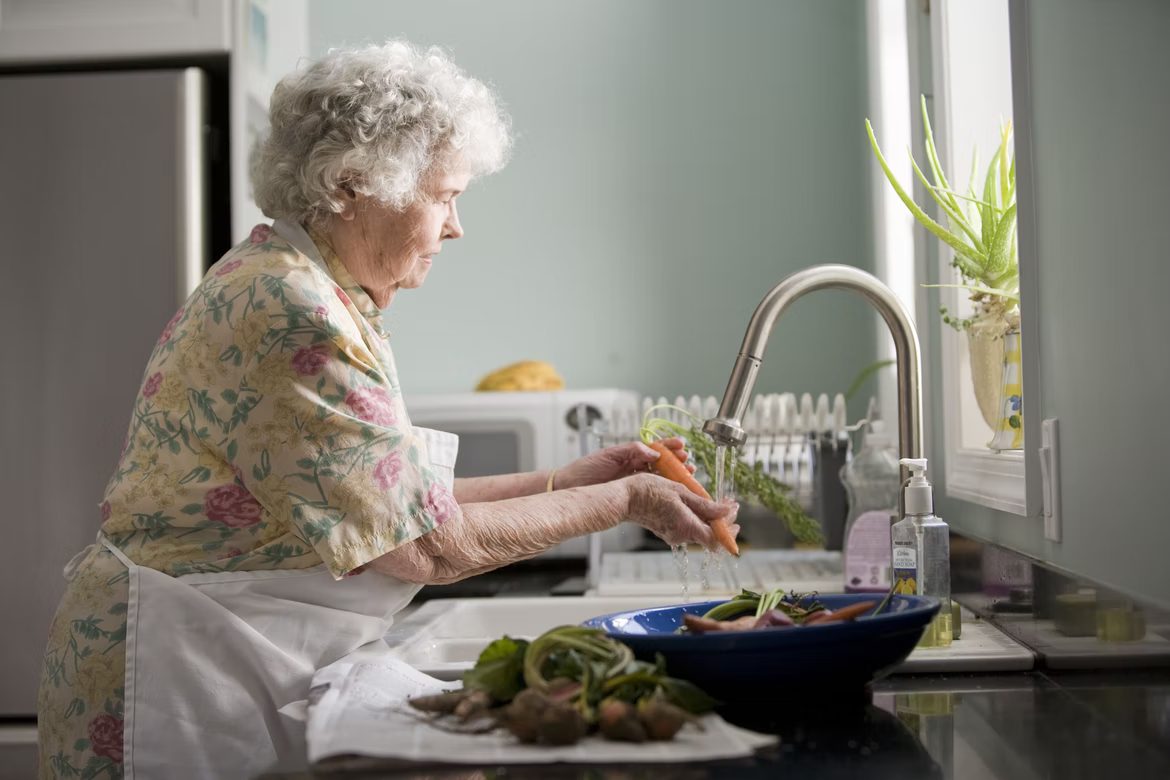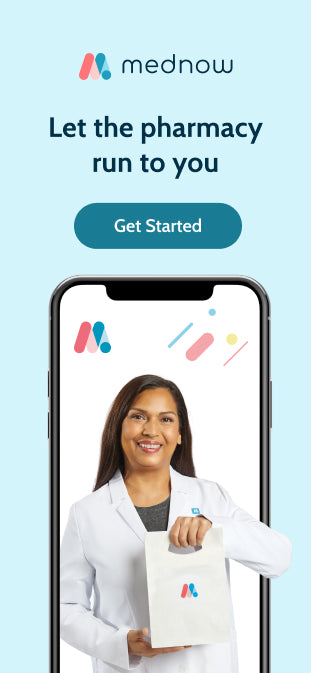Nutrition is an important consideration for people of all ages. Young children need a wholesome diet to develop properly, adults need to fuel their busy lifestyle, and the elderly need nutritious food to stay healthy.
Healthy nutrition becomes increasingly important for the elderly, helping to prevent chronic diseases and live a comfortable life in their golden years.
If you’re helping to care for your elderly parents, then it’s important to put nutritious and healthy meals at the centre of your care. Understanding the vital role that diet plays in their health and wellbeing is the first step to effective care for elderly parents.
What effect does ageing have on your nutritional needs?
After living a full life, the body begins to deteriorate with old age. Muscle mass decreases, there’s a loss of bone density and joint pain are common struggles of the elderly, but they can be reduced with the help of proper nutrition.
Essentially, the main focus should be on countering nutrient deficiencies with a wholesome diet.
Did you know that the elderly can be at risk of malnutrition, even if they eat large portion sizes? Rather than focus on the amount of food that is consumed, the emphasis should be on the nutrients. As an individual ages, their activity levels typically decrease and fewer calories are needed on a daily basis. Failing to adjust the number of calories consumed could lead to unwanted fat and sub-par nutrition for seniors.
With this in mind, eating nutrient-dense foods is important. While hunger and thirst levels may reduce with older age, the need for nutrients increases in order to slow down the deterioration of the body and bodily functions.
Nutritious meals should include whole foods that are high in protein, vitamin D, calcium and vitamin B12 (among other nutrients). For example, consider serving warm oatmeal and berries for breakfast, vegetable stir fry for lunch and a dinner of grilled fish with vegetables.
Physical changes in elderly people
Just as a baby gets milk teeth, teenagers go through puberty and pregnant women undergo hormonal changes, so do the elderly experience physical changes.
In turn, their nutritional needs are affected by these physical changes and should be considered for healthy ageing.
It’s normal for older adults to experience the following physical changes.
- Metabolism slows
- Thinning skin
- Decreased appetite
- Reduction in lean body mass
- Less bone density
- Difficulty to absorb vitamin B12 (essential for red blood cell formation, cell metabolism, nerve function and the production of DNA)
- Impacted taste buds
These physical changes can trigger other conditions and impact bodily functions. For example, bone loss can lead to osteoporosis. Fortunately, changing dietary habits and improving your elderly parents' nutritional status can counter these ailments and improve quality of life and general health.
What kind of nutrition do you need in your diet?
While each person’s genetic makeup and physical condition are unique, older adults generally experience similar developments with age.
Diet quality can be dramatically improved by focusing on the following food groups and nutrients.
Protein
Studies have shown that adults lose approximately 3-8% of their muscle mass each decade after the age of 30. After turning 60, this percentage increases, as well as a decrease in muscle mass and insulin resistance.
The condition of muscle and bone loss, known as sarcopenia, can be alleviated by increasing protein intake. Protein helps to maintain muscle and prevent sarcopenia, reducing the risk of weakness, fractures and poor health.
Top health tip: Combine a high-protein diet with light resistance exercise for optimal results. Consider squats, toe stands and wall push-ups.
Calcium and vitamin D
Calcium also plays an important part in maintaining bone health, however, elderly people often struggle to absorb calcium from their diets - and that’s where vitamin D comes in. Vitamin D, which is found in fatty fish and fortified foods, helps the body to absorb calcium. In some instances, dietary supplements may be beneficial as well.
Exposure to sunlight also triggers the body’s ability to make vitamin D. However, the skin thins in older years and this can have a negative impact on the body’s ability to produce the vitamin, often leading to a vitamin D deficiency.
Fibre
People over the age of 60 years old tend to struggle with chronic constipation, with symptoms impacting roughly 50% of nursing home residents. One of the biggest contributing factors to constipation in the elderly is an increase in medication, yet dietary fibre can help to alleviate the symptoms. Fibre assists the digestion process by stimulating bowel movements.
Fibre also plays a key role in protecting against diverticular disease, an inflamed infection along the colon wall. The condition is commonly associated with the Western diet which tends to have reduced fibre intake.
Vitamin B12
It’s not only the physical body that starts to deteriorate in old age. The mind also becomes vulnerable to common diseases such as dementia. Vitamin B12, also known as cobalamin, is one of the essential nutrients for health and helps to counter these conditions by maintaining healthy brain function.
Vitamin B12 is bound with protein-rich foods and the body relies on stomach acid to separate the vitamin from the protein. As older adults generally have a reduction of stomach acid, they tend to struggle with a Vitamin B12 deficiency.
Additional nutrients to assist in old age
The above nutrients are essential for an optimal, balanced diet, but they are just the tip of the iceberg. Consider the following nutrients that are also valuable to improving diet quality.
- Potassium to prevent high blood pressure, kidney stones, osteoporosis and heart disease
- Omega-3 fatty acids to protect against heart disease
- Magnesium to improve gut function
- Iron to assist with the circulation of oxygen in the blood
Healthy Eating Plans for Seniors
There is no single healthy eating plan for seniors. Each person will have their own preferences and medical requirements that will impact their daily nutritional needs. For example, some people may follow a vegetarian diet and need to compensate for the lack of protein-rich sources in the form of animal products. Others may have allergies or ailments.
As a guideline, an elderly person should meet the following dietary guidelines every day, in whichever way best suits them.
- 150 to 200 grams of lean protein such as lean meat, seafood, eggs and beans
- 2 to 2.5 cups of assorted fruit
- 2 to 2.5 cups of assorted vegetables
- 150 to 300 grams of whole grains such as brown rice or wholewheat pasta
- 2 to 3 cups of low-fat dairy such as low fat milk
To put this into perspective, consider the following:
- Fill half of the plate with fruits and vegetables
- Ensure that at least half of your grains are whole grains
- Increase nutrients but decrease portion size
- Choose foods with less sodium, sugar, and saturated fat
Some helpful tips to boost your nutritional health
Going through physical changes can be an overwhelming experience and a little bit of knowledge and preparation can go a long way. As the metabolism slows down, the digestive system changes and appetite is affected, it’s important to focus on nutritional health.
Knowing which nutrients to prioritise is a great start. Consider the following tips to further boost nutritional health.
- Eat a wide variety of foods from the five main food groups
- Drink six to eight cups of water each day
- Limit foods that are high in saturated fats, such as baked goods and fast food
- Prioritise polyunsaturated and monounsaturated fats (the healthy fats such as avocado) instead of saturated fats
- Limit foods with a high salt and sugar component
- Reduce alcohol
- Incorporate physical activity on a daily basis
How caregivers can help their ageing loved ones
After raising you, providing you with opportunities and contributing to wonderful memories, it’s time to switch roles and care for your parents. In some instances, you may take on the responsibility yourself. In other instances, you may get the help of a caretaker to lighten the load.
The amount of support that you can offer will depend on various factors such as budget, location and your parent’s preference. For example, sharing a meal with friends and family can increase food enjoyment and help to improve dietary patterns. If your elderly loved one struggles to swallow then you can introduce foods of certain textures and invest in dental health.
Food safety is also a critical concern as foodborne illnesses are more challenging to overcome with an aged immune system. Finding resources to help older adults eat healthily can be a huge help.
Start your research here;
- Congregate Nutrition Services who provide wholesome meals for people over the age of 60
- Supplemental Nutrition Assistance Program (SNAP) offers temporary benefits to assist with food purchases
- Commodity Supplemental Food Program (CSFP) distributes monthly packages of nutritious foods
- Home-Delivered Nutrition Services delivers food to adults who struggle to leave the home
- Child and Adult Care Food Program offers reimbursements for nutritious meals to adults in daycare facilities
If you’re interested in exploring further about nutrition for older adults, then you can browse more nutrition programs for seniors.
One step closer to optimal health with Mednow
It’s important to focus on nutrition as we age. Nutrient requirements for the elderly evolve as healthy eating for seniors becomes a top concern. At Mednow, we’re well versed in the nutritional needs of elderly people and our convenient online pharmacy makes it easier to have supplements and medication delivered to your door.
With personal care and fast and free prescription delivery, we ensure that your health stays in tip-top shape. We also offer up-to-date medical advice information through our virtual walk-in clinic and blog with health-related insights.
Get started with Mednow today!
This article offers general information only and is not intended as medical or other professional advice. A healthcare provider should be consulted regarding your specific situation. While the information presented is believed to be factual and current, its accuracy is not guaranteed and it should not be regarded as a complete analysis of the subjects discussed. All expressions of opinion reflect the judgement of the authors as of the date of publication and are subject to change. No endorsement of any third parties or their advice, opinions, information, products or services is expressly given or implied by Mednow or its affiliates.
Get Started
